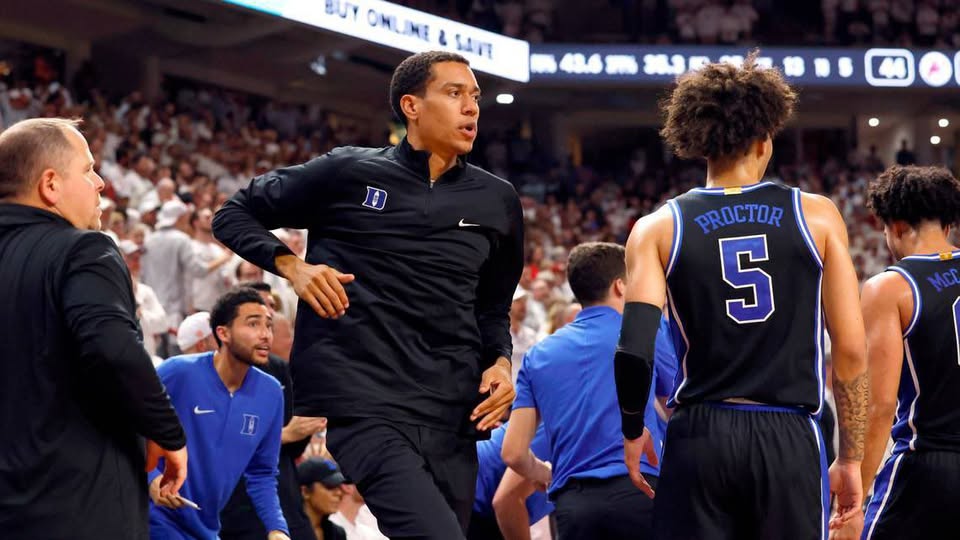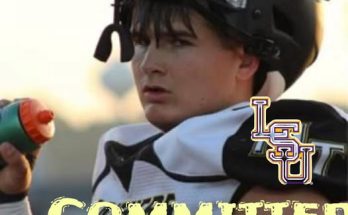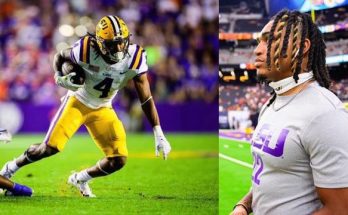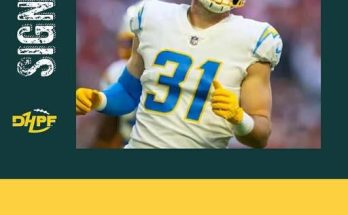In a move that blends basketball royalty with modern NBA evolution, the Los Angeles Lakers have officially added Justin Robinson to their coaching staff as the team’s newest player development coach. The decision signals another calculated step by the franchise to infuse youth, legacy, and intellectual depth into an ever-transforming basketball landscape. For Robinson, the son of San Antonio Spurs legend and NBA Hall of Famer David Robinson, it’s more than just a job—it’s the continuation of a family tradition rooted in excellence, humility, and hard work.
The Lakers’ decision to bring Justin Robinson on board is reflective of the team’s recent commitment to a modern, player-centered developmental model, especially under new head coach JJ Redick. With Redick taking the reins of one of the league’s most scrutinized and historic franchises, his selection of staff members is being closely watched. In Robinson, the Lakers are not only adding a coach with an elite basketball lineage, but also a rising basketball mind shaped by a rich blend of personal experience, discipline, and professional pedigree.
Born into greatness, Justin Robinson carries the name of a man whose dominance in the paint and professionalism off the court made him one of the most revered figures in NBA history. David Robinson—known affectionately as “The Admiral”—was the anchor of the San Antonio Spurs dynasty, a 10-time All-Star, two-time NBA champion, and Olympic gold medalist who redefined the center position with his agility, defense, and leadership. But for Justin, the path has never been about living in his father’s shadow—it’s always been about carving his own identity in the sport he loves.
That identity began to take shape during his time at Duke University, one of college basketball’s most prestigious programs. Despite not being a blue-chip recruit like many of his peers, Robinson persevered, earning a role on the Blue Devils roster through work ethic, intelligence, and dedication to the team’s goals. In his senior season, he delivered standout performances and was praised by then-coach Mike Krzyzewski for his leadership, court awareness, and tenacity. Those qualities would later become foundational to his post-playing career.
After graduating from Duke, Robinson dabbled in professional basketball, including a stint in the G League, before transitioning to the coaching side of the game. It was a natural evolution. The same traits that had earned him respect at Duke—his cerebral approach to the game, tireless work habits, and natural ability to connect with teammates—translated seamlessly into the coaching realm. And now, at just 27 years old, he finds himself on one of the most visible stages in the basketball world: helping to shape the next generation of Lakers stars.
Robinson’s hiring is especially intriguing given the Lakers’ current roster composition and overall organizational direction. With a mix of established veterans like LeBron James and Anthony Davis, alongside younger talents such as Max Christie, Jalen Hood-Schifino, and Bronny James, the franchise is at a pivotal crossroads between championship contention and future development. That delicate balance requires a player development staff that can speak the language of both generations. Robinson, with his youthful energy and second-generation NBA knowledge, seems uniquely qualified to bridge that gap.
The fact that he is only a few years removed from competing on the court himself is a significant asset. In today’s NBA, where relatability and communication are critical to player engagement, younger coaches like Robinson often find they can connect with rising talents more effectively than their older counterparts. He understands the pressures of AAU circuits, the intensity of social media scrutiny, and the psychological grind of trying to break into a crowded NBA rotation. That empathy, paired with his basketball IQ, offers the Lakers a modern developmental voice to guide their prospects.
Moreover, Robinson’s background suggests he brings more than just technical knowledge. Raised in a household where discipline, education, and service were paramount, he is likely to promote a holistic development philosophy—one that nurtures players as both athletes and individuals. David Robinson famously balanced his Navy service with his NBA superstardom and later founded the Carver Academy, a school focused on developing future leaders. It’s reasonable to expect that Justin carries many of those values with him into the Lakers facility each day.
For Lakers fans, the news of Robinson joining the staff may not carry the splashy headline of a blockbuster trade or high-profile signing. But behind the scenes, player development roles often prove to be the lifeblood of successful franchises. In a league increasingly defined by player movement, short contracts, and early entry draft picks, teams that can consistently develop internal talent have a critical competitive edge. That’s especially true for the Lakers, whose championship windows under LeBron James may be closing, and whose future depends on the maturation of the next wave of talent.
Robinson’s impact, therefore, may not be immediately visible in box scores or highlight reels, but it could be felt profoundly in the quiet growth of the team’s youngest contributors. Helping a rookie learn defensive rotations, refining a bench player’s shooting form, or building a player’s confidence after a tough stretch—these are the subtle but essential tasks that player development coaches handle every day. With the Lakers vying to maximize every ounce of production from their entire roster, Robinson’s role is far more vital than casual observers might realize.
His appointment also fits into a broader trend across the NBA: the increasing rise of second-generation basketball minds entering the coaching and front-office ranks. From Stephen Curry to Jalen Brunson, the league is full of players who grew up in the shadow of greatness, and many of them are now pivoting into leadership positions of their own. Robinson’s ascent into coaching mirrors this movement, suggesting a future where the league is shaped not just by athletic prodigies, but by the basketball wisdom handed down from one generation to the next.
In Los Angeles, that legacy now blends with a franchise long defined by star power, championship expectations, and global influence. For Robinson, the task will be as daunting as it is exciting: to uphold the standards of his legendary surname while helping one of basketball’s most iconic teams chase continued relevance in an era of relentless competition. Yet, based on his journey so far, there’s little doubt that he’s ready for the challenge.
Lakers general manager Rob Pelinka has often spoken about building a culture that values high character, work ethic, and basketball intelligence. Robinson, by every account, embodies those attributes. His hire isn’t just about filling a staff position—it’s about reinforcing an identity. One that values legacy but isn’t chained to the past. One that embraces youth but insists on maturity. One that understands greatness not as a birthright, but as something earned, one rep, one film session, one teaching moment at a time.
In the weeks ahead, Robinson will be seen on the sidelines during Summer League, walking through drills in practice, and sitting in film rooms with the Lakers’ young core. His job won’t be glamorous, and his name might not trend on social media. But his presence will be felt—in the footwork of a developing wing, in the improved decision-making of a backup guard, and in the steady, patient guidance that transforms potential into performance.
For a franchise defined by banners and legends, success has always depended on more than stars. It’s about the entire ecosystem—from trainers and scouts to video coordinators and development coaches—working in harmony to sustain a standard of excellence. In Justin Robinson, the Lakers have added someone who not only understands that culture but was born into it. As he begins his journey in Los Angeles, fans and observers alike would be wise to keep an eye on his influence, subtle though it may be. In the end, his contribution may prove to be one of the quiet cornerstones of whatever the Lakers build next.



